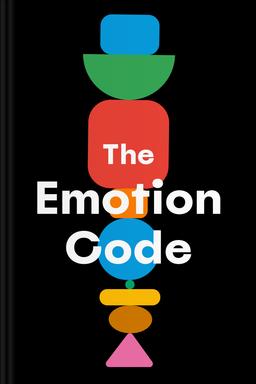Emotions shape the way we think, act, and connect with others. Learning how to recognize and manage them is essential for personal growth, self-awareness, and overall well-being in everyday life.
Explore our top books on emotions to gain practical tools, insights, and strategies for managing and expressing your feelings. They'll strengthen your emotional intelligence, nurture your relationships, and enhance your mental health. Along the way, you'll see how emotional mastery can positively change your personal and professional life. Why not pick one up today and see how it shifts your perspective?
Books about emotions: How self-kindness and vulnerability can turn your life around
The past few years have breathed new life into conversations surrounding the subject of mental and emotional health. Now, people are not encouraged to dismiss "unacceptable" feelings but to learn to understand, admit, and embrace them.
The most gentle and easygoing way to begin this journey is by turning to reflective books about emotions, which offer their readers wisdom and comfort. Start with 'The Emotional Life of Your Brain,' which explains how our brain forms our feelings and how these patterns can either steal or build up our happiness.
'Descartes' Error' mirrors this point and reminds us that emotions aren't barriers to uncluttered judgment; when taken under our guidance, they help us make better choices.
If you want to find out more about how love can transform us, check out Barbara Fredrickson's 'Love 2.0.' The author depicts how a simple but sincere, heart-to-heart human connection strengthens our resilience and even boosts our immunity.
Brené Brown's 'The Gifts of Imperfection' might be the best choice for those who want to know and understand themselves better. The author teaches readers how to embrace vulnerability and practice self-compassion.
These books teach a simple yet important truth: you shouldn't protect your emotional health by ignoring how you feel; instead, you should welcome your emotions with warmth and thoughtfulness.
Ultimately, emotional growth isn't about uninterrupted calm or perpetual happiness — it's about navigating a rich, unfolding journey of learning, healing, and embracing the wondrous complexity of being human.
Finding your balance: Books about controlling emotions
After we learn to understand our emotions a bit more, the next step is to find out the secret to living with them in a balanced, self-compassionate way. Here's where books about controlling emotions can equip you with practical tips on how to regulate and acknowledge your feelings, not allowing them to make you deny the facts and reality.
The collection includes a variety of voices — popular researchers like Daniel Z. Lieberman and Richard J. Davidson alongside plainspoken memoirists such as Jennette McCurdy and Felicia Day. They remind us that emotional growth mostly happens through messy life experiences.
For example, 'White Bears and Other Unwanted Thoughts' by Daniel Wegner shows readers the consequences of attempts to suppress emotions. If you turn the pages of 'F*ck Feelings' next, you'll get straightforward advice on approaching challenges with confidence and balance.
Lysa TerKeurst's book 'Unglued' explains practical strategies for responding wisely during emotional storms and making more mindful and measured choices.
When emotions get intense, books like Megan Devine's 'It's OK That You're Not OK' and 'I'm Glad My Mom Died,' written by Jennette McCurdy, celebrate the importance of welcoming them. They remind us that grief, anger, and sadness are natural parts of being human — feelings to honor, understand, and give enough space to.
Together, these books encourage us to view emotional regulation not as rigid "control," but as learning to respond with patience, honesty, and self-care.
If you'd like to continue this journey, explore the list of inspiring books below and discover new ways to navigate life's ups and downs.




